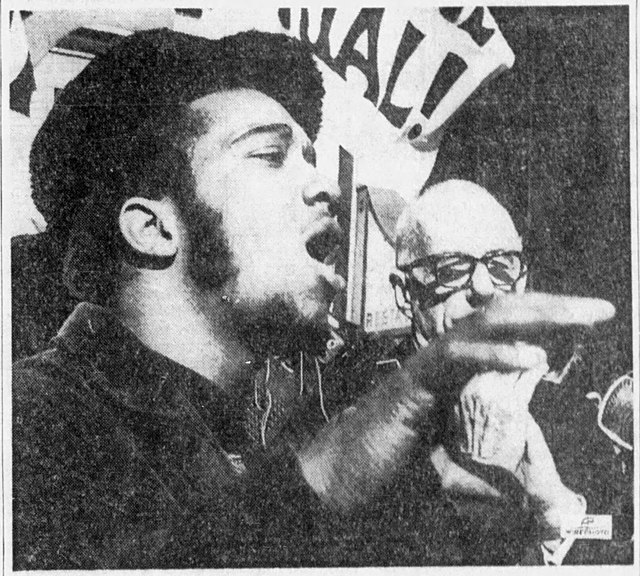Egyptian Theatre hosts ‘Judas and the Black Messiah’ screening, discussion
March 1, 2023
Editor’s Note: The following piece contains spoilers about the film “Judas and the Black Messiah.”
“Judas and the Black Messiah” is a powerful and raw film unlike any other story told about the Civil Rights Movement.
A screening of the film was held at the Egyptian Theatre in DeKalb and was followed up with a Q&A.
Fred Hampton Jr., the son of the Black Panther Party’s Illinois Chapter Chairman Fred Hampton, made an appearance at the screening for the talkback with guests. Hampton Jr. discussed how the film was revolutionary as it brought attention to how Hollywood tackles race relations and the politics of the outside world.
He compared the accuracy of the film to other works such as the recently released “You People.”
“Whatever the deal is, we say a legacy is more important in your life. A legacy is a sort of template and sort of prototype. The Black Panther Party was our template,” Hampton Jr. said.
As for the film itself, it tells the true story of the Illinois chapter of the Black Panther Party in Chicago. William O’Neal (LaKeith Stanfield) is arrested for pretending to be a federal officer to steal a car. O’Neal accepts a plea deal with the goal of Infiltrating the Illinois chapter of the Black Panther Party and their leader Fred Hampton (Daniel Kaluuya). In exchange, he’s let go scot-free and doesn’t have to serve his six-and-a-half-year sentence.
He further expressed how imperative it was to have an accurate depiction of the Black Panther Party.
“Hollywood cannot say everything, and there are certain things you can’t put in the movie,” Hampton Jr. said. “However, it was one of the most revolutionary movies that have come out. We were able to put Panther-Cub political appeals in the applesauce.”
Other patrons at the screening were shocked by the social and political struggles the film conveyed that still remain topical to this day.
“I think it was trying to raise consciousness. I didn’t know a lot of this stuff. And I don’t know if a lot of people do,” said Maggie Scanlan, a DeKalb resident.
“It’s hard to watch,” said Ashley Palmer, an English, language and literature major who works with NIU on academic diversity, equity, and inclusion. “Because it’s historical, to know that the city I was born and raised in harbors this level of activism and was also capable of harboring such insidious deception.”
Director Shaka King brings his A-game informing viewers about the Panther Party’s fight against class struggle in the 1960s. In conjunction, the FBI are made very clear as a governmental threat to the party as they attempt to shut them down, even comparing the party to the Ku Klux Klan on numerous occasions. The attention to accuracy to the real-life events of the Black Panther Party makes this piece of cinema one of the most accurate biopics of any figure there is today.
The cinematography and lack of score give the film a more authentic experience. It almost makes the viewer feel as if they’re in the shoes of the Panther Party. Kaluuya’s performance as Fred Hampton makes you invested in the speeches he gives throughout and shows fearlessness and determination for his words to be heard and incite change in the racially torn society.
The speeches themselves become ingrained in the viewer’s mind, leaving them with a message to bring more good to our troubled society. Watching Kaluuya embody Hampton’s speeches in comparison to footage of the real-life Fred Hampton makes the two nearly interchangeable.
Stanfield as William O’Neal and Jesse Plemons as Roy Mitchell are also remarkable opposite Kaluuya. O’Neal starts off only seeing Hampton and his party as a means to an end but soon is conflicted and fearful of Hampton’s inevitable assassination at the hands of the FBI.
The Black Panther Party’s story is daring and unpleasant, which results in a daring and unpleasant film. However, films and stories that are daring and unpleasant are the ones that always stick with you. The story of Fred Hampton and the Black Panther party as a whole are alive and well today, but the question that remains is, “how much has changed?”







